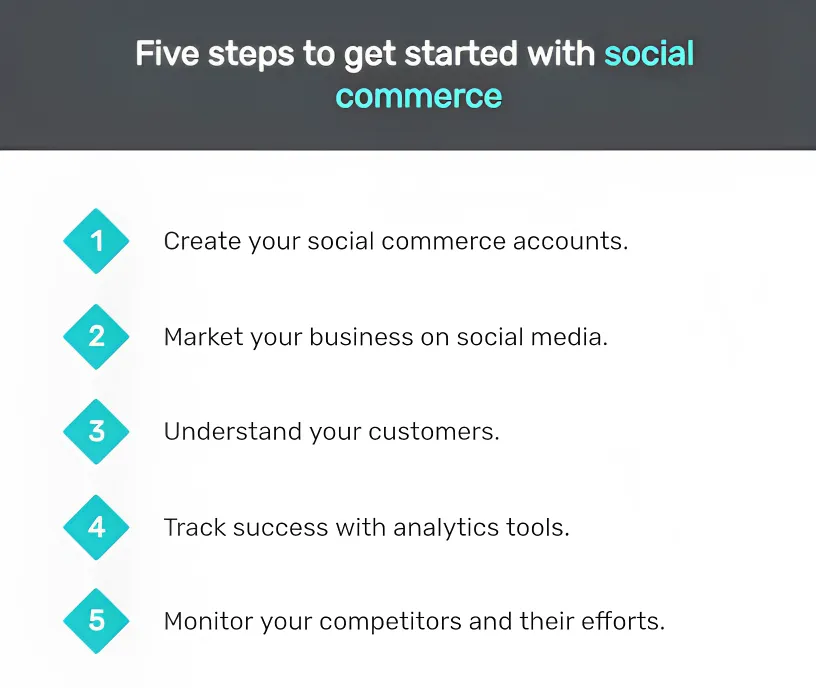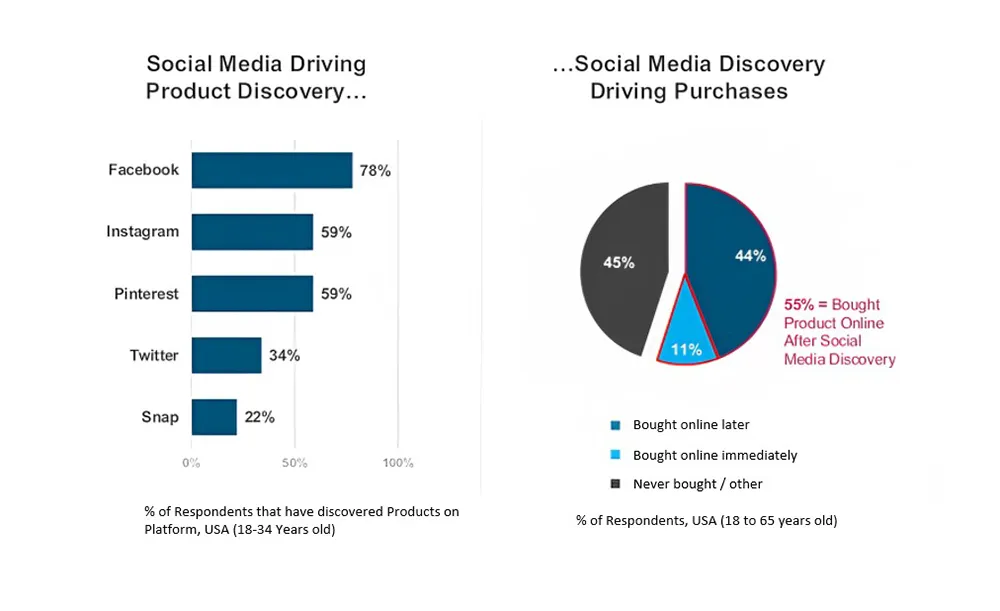eCommerce V/S Social Commerce
eCommerce: The Traditional Way of Online Shopping
eCommerce (electronic commerce) refers to the purchasing and selling of goods and services over the Internet. It has been a dominant force in the retail industry for many years, offering consumers the convenience of shopping from the comfort of their homes and businesses and the opportunity to reach a wider customer base.
Platform Dependency
In traditional eCommerce, businesses typically have their own dedicated websites or mobile apps where customers can browse products, make purchases, and complete transactions. The success of eCommerce relies heavily on driving traffic to these dedicated platforms through various marketing and advertising efforts.
Search-based Shopping
In eCommerce, customers usually rely on search engines or online marketplaces to discover products. They actively search for specific items or browse through categories to find what they need. While eCommerce platforms may employ recommendation algorithms to suggest products based on user preferences, the discovery process is primarily driven by search queries.
Social Commerce: The Power of Social Media
Social commerce, on the other hand, leverages the power of social media platforms to create a more interactive and engaging shopping experience. Here are some key aspects of social commerce:
Shoppable Content
Shoppable content refers to posts, videos, or images on social media platforms that are directly linked to product pages or online stores, allowing users to make purchases with a simple tap or click.
Platforms like Instagram and Pinterest have introduced features like shoppable tags and pins, enabling businesses to tag products directly in their posts. When users come across these tags or pins, they can view additional product information and proceed to purchase without leaving the platform. This seamless integration of shopping and content consumption has revolutionized the way consumers discover and buy products.
Seamless Integration
Social commerce integrates the shopping experience seamlessly within the social media platform. Users can discover products while scrolling through their social feeds, interacting with posts, or watching videos. They can view product details, read reviews, and make purchases directly within the platform, eliminating the need to navigate to external websites or apps.
Influencer Marketing
Social commerce often thrives on influencer marketing, where popular social media influencers collaborate with brands to promote products. Influencers create engaging content, showcasing products and providing genuine reviews or recommendations. This approach builds trust and authenticity, influencing the purchase decisions of their followers.
User-generated Content
Social commerce heavily relies on user-generated content (UGC). Users share their experiences, post reviews, and even create content featuring products they have purchased. This UGC serves as social proof and encourages others to make informed purchasing decisions. Social media platforms provide a fertile ground for UGC to flourish.
The Synergy between eCommerce and Social Commerce
While social commerce is transforming the way we shop, it does not necessarily replace traditional eCommerce. There is a synergy between the two that can be harnessed for even greater success. Many eCommerce organizations now incorporate social commerce strategies to expand their reach and engage with customers more effectively.
Omni-channel Approach
Retailers are adopting an omnichannel approach, where they integrate social commerce features into their existing eCommerce platforms. Some agencies help you streamline the process of integration. This allows customers to discover products through social media channels and seamlessly transition to the retailer's website or app for a complete shopping experience.
Social Media Advertising
eCommerce businesses are leveraging the advertising capabilities of social media platforms to target specific audiences and drive traffic to their websites or apps. Social media ads can be highly targeted, based on user demographics, interests, and behaviors, maximizing the chances of reaching potential customers.
Enhanced Customer Engagement
Social commerce enhances customer engagement by providing a platform for real-time interactions, instant feedback, and personalized recommendations. Businesses can leverage social media analytics to gain insights into customer preferences and tailor their offerings accordingly.


























